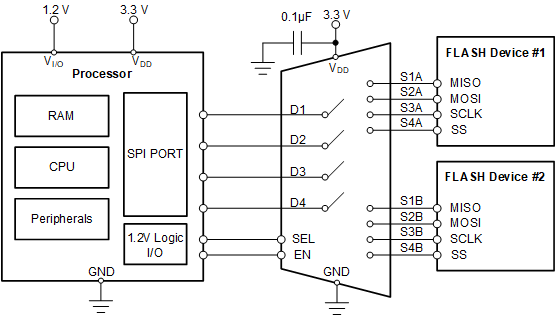SCDS423A October 2020 – May 2024 TMUX1575
PRODUCTION DATA
8.1 Typical Application
Common applications that require the features of the TMUX1575 include multiplexing various protocols from a possessor or MCU such as SPI, JTAG, eMMC, or standard GPIO signals. The TMUX1575 provides superior isolation performance when the device is powered. The added benefit of powered-off protection allows a system to minimize complexity by eliminating the need for power sequencing in hot-swap and live insertion applications. The example shown in Figure 8-1 illustrates the use of the TMUX1575 to multiplex an SPI bus to multiple flash memory devices.
 Figure 8-1 Multiplexing Flash Memory
Figure 8-1 Multiplexing Flash Memory